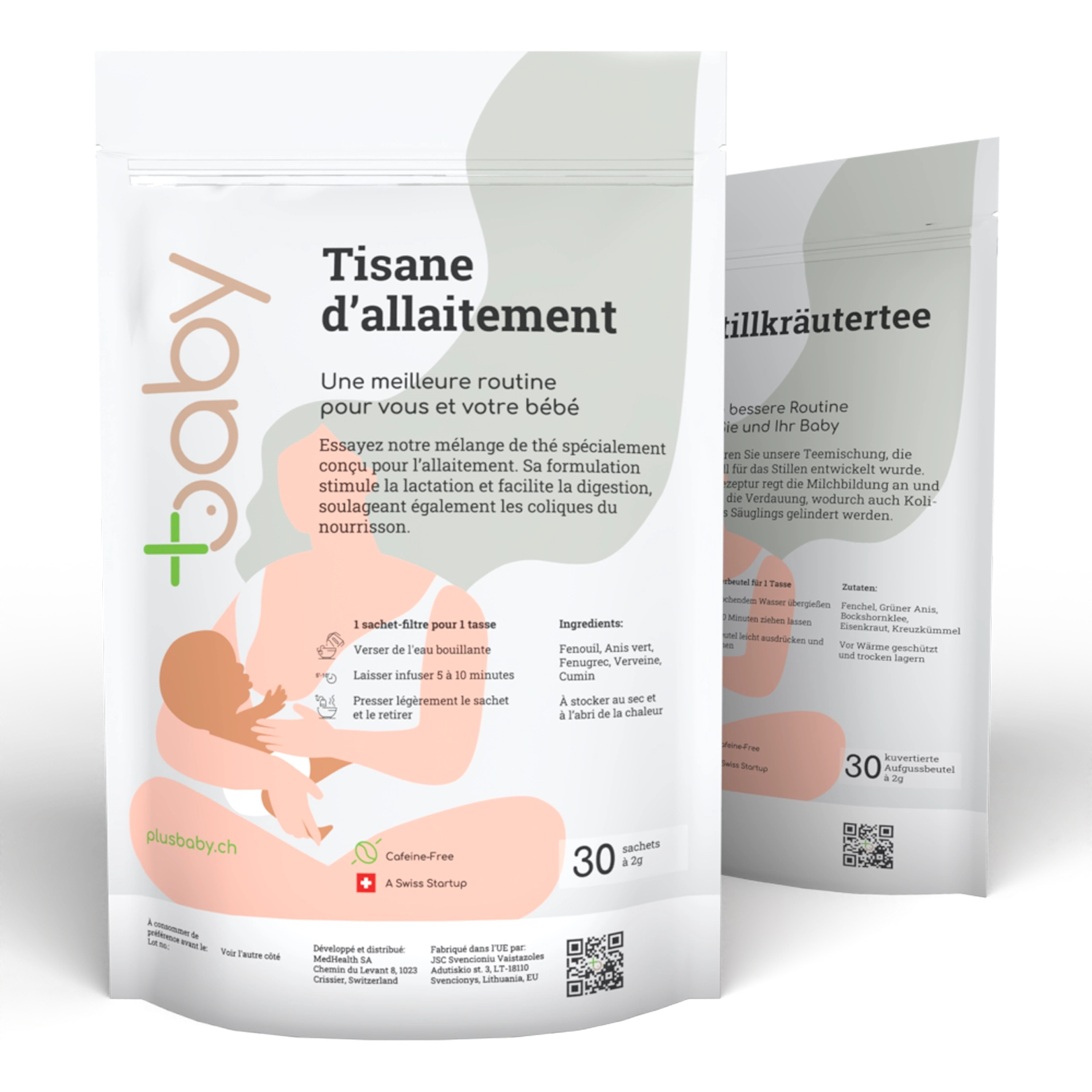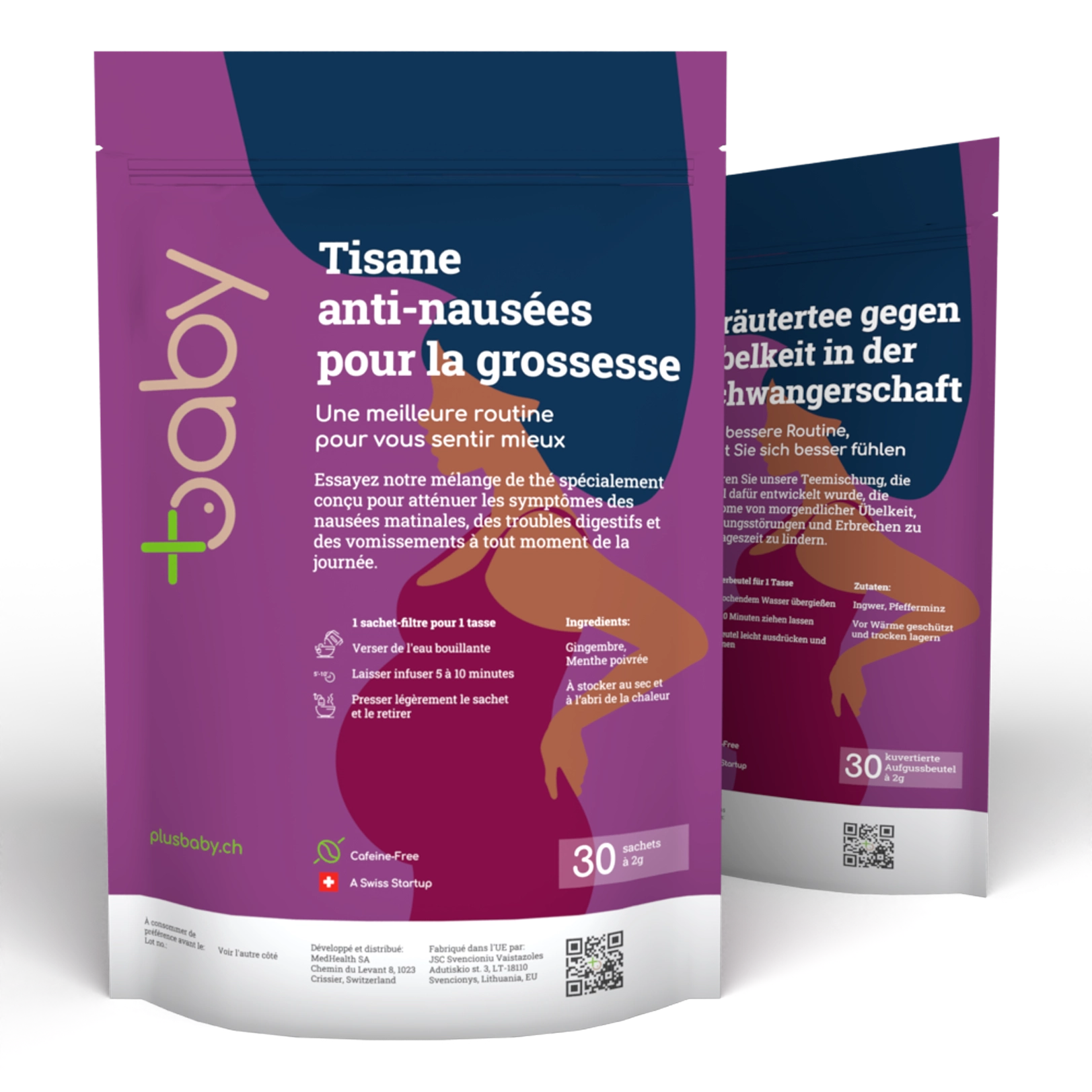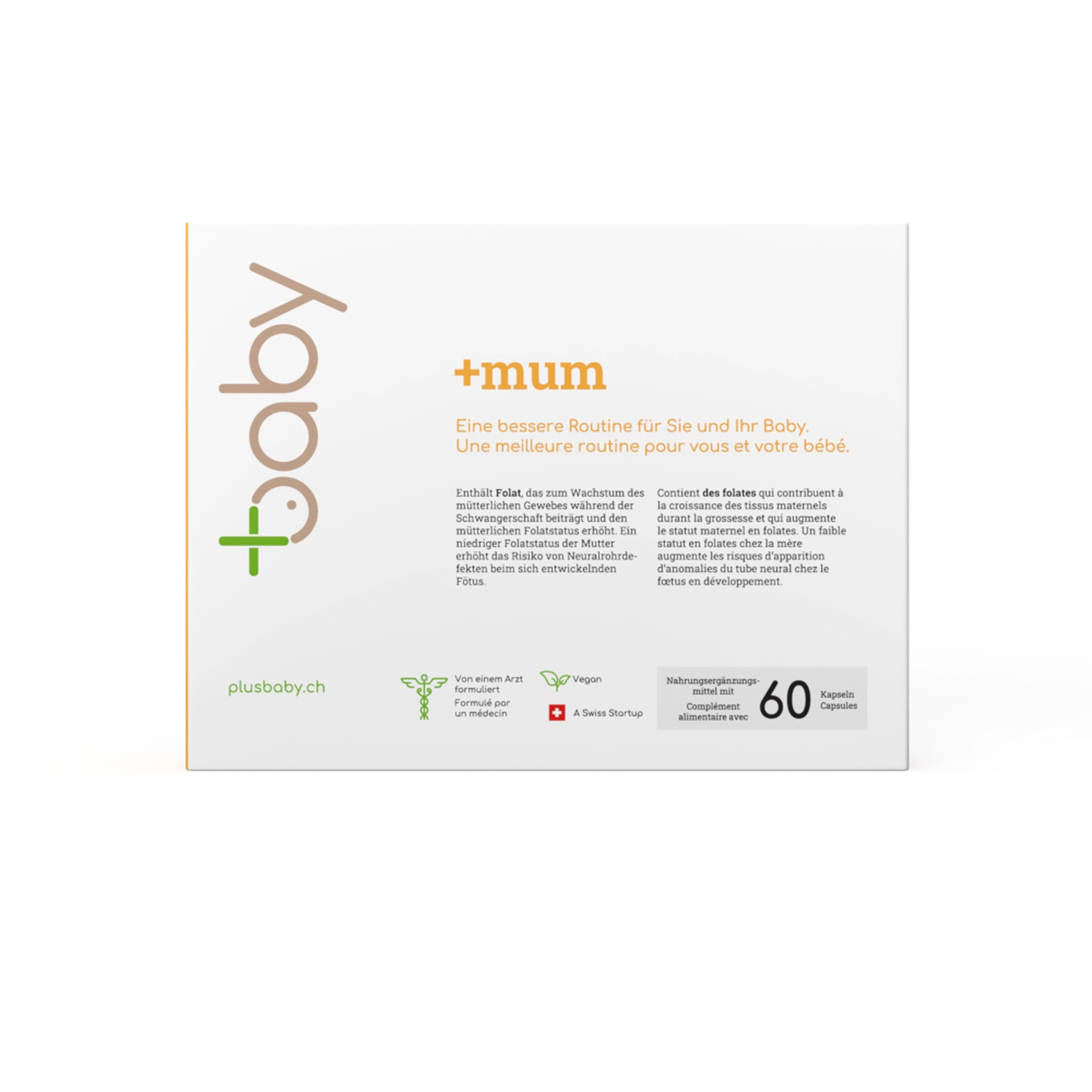In our article entitled "Anti-nausea herbal tea: what's the best herbal tea for pregnant women?", we explore the world of anti-nausea herbal teas, with a particular focus on those suitable for expectant mothers.
Pregnancy is an extraordinary journey, marked by transformations and discoveries, but also sometimes accompanied by minor inconveniences, among which morning sickness holds a prominent place. Often considered one of the first signs of pregnancy, morning sickness can greatly affect the daily well-being of pregnant women, making the search for safe and effective remedies a priority for many. In this world of natural solutions, medicinal herbal teas are emerging as the allies of choice, offering a gentle and respectful response to the female body in the midst of upheaval.
In Switzerland, a large majority of pregnant women experience morning sickness or similar complaints during their pregnancy. Although precise statistics may vary, it is widely acknowledged that up to 80% of pregnant women experience some form of nausea at some point during their pregnancy, with fluctuating degrees of severity. These figures underline the importance of having effective and accessible solutions to manage these symptoms, in order to make the pregnancy experience as comfortable as possible for all.
In our article "Anti-nausea herbal tea: what's the best herbal tea for pregnant women?", we explore the world of anti-nausea herbal teas, and present a remarkable innovation in this field: Plusbaby herbal tea, specifically formulated by Swiss doctors to bring relief and comfort to pregnant women facing the discomforts of nausea. By delving into the secrets of plants that have been used for thousands of years for their digestive and soothing properties, we'll discover together which herbal tea is best suited to accompany pregnant women through the challenges of pregnancy.
Pregnancy nausea
Pregnancy-related nausea, commonly known as morning sickness, is a common symptom among pregnant women, significantly affecting their daily lives. It typically manifests itself as a feeling of discomfort and the urge to vomit, and can occur at any time of the day, despite its name. The prevalence of this symptom varies, but it is estimated that 70 to 80% of pregnant women experience it to some degree, with intensity ranging from mild nausea to severe vomiting sometimes requiring medical intervention.
The underlying causes of nausea and vomiting of pregnancy (NVP) are complex and the subject of much research. However, scientists agree that several physiological and hormonal factors contribute to the onset of NVP. One of the main players is human chorionic gonadotropin (hCG), a hormone whose levels rise rapidly in early pregnancy. The correlation between hCG peaks and the intensity of nausea suggests a causal link. Other hormones, such as estrogen, may also play a role, as well as psychological and genetic factors.
The impact of nausea and vomiting of pregnancy on the daily lives of pregnant women should not be underestimated. Nausea and vomiting can affect eating and hydration, leading to weight loss and dehydration in severe cases. Psychologically, it can cause significant distress, affecting quality of life, mood and general well-being. In addition, nausea and vomiting of pregnancy can impact on work capacity and social interaction, accentuating feelings of isolation in some women
Epidemiological studies indicate that nausea and vomiting of pregnancy affects a large majority of pregnant women worldwide, regardless of race or socio-economic status. Although symptoms are generally most pronounced between the 4th and 9th week of gestation, reaching a peak around the 12th week, they can persist well beyond the first trimester for some women.
The management of nausea and vomiting of pregnancy relies on a multidisciplinary approach, combining dietary modifications, psychological support and, in some cases, pharmacotherapy. Early recognition and treatment of nausea and vomiting of pregnancy are crucial to minimizing its impact on the health of both mother and fetus, underlining the importance of open communication between pregnant women and healthcare professionals.
Ginger
Ginger, known for its gastro-protective properties, is one of the most widely recognized natural remedies for nausea. Clinical studies have demonstrated the effectiveness of this root in reducing nausea symptoms, particularly in pregnant women.
Ginger, scientifically known as Zingiber officinale, is a medicinal plant whose use dates back millennia in various cultures to treat a multitude of ailments, including nausea and vomiting. In the context of pregnancy-related nausea, ginger acts as an effective natural remedy, thanks to its bioactive compounds, such as gingerols, which possess pronounced antiemetic properties. Clinical studies have shown that ginger consumption can significantly reduce the severity of nausea without posing any risk to the fetus, making ginger a key ingredient in the formulation of an anti-nausea herbal tea.
Ginger's effectiveness lies in its action on the gastrointestinal tract, facilitating digestion and inhibiting nausea reflexes through its action on the central nervous system and gastrointestinal tract. As a result, including ginger in an anti-nausea herbal tea offers a natural and safe solution for pregnant women seeking to alleviate the discomfort of morning sickness.
With regard to the effectiveness of ginger in the treatment of nausea and vomiting during pregnancy, several studies have demonstrated its efficacy and safety. A systematic review found that ginger was significantly more effective than placebo in reducing the frequency of vomiting and the intensity of nausea in pregnant women Another study showed that ginger could indeed relieve the severity of nausea and vomiting of pregnancy, noting that no adverse effects on pregnancy outcome were detected. This underlines the importance of professional guidance when considering ginger as a treatment option. Finally, a study evaluating the effects of ginger capsules on pregnancy-related nausea and vomiting found that ginger users experienced a higher rate of improvement compared to those who took a placebo.
Peppermint
Peppermint, with its menthol-rich essential oil, has antispasmodic and relaxing properties for the digestive system, offering relief from nausea and vomiting. Chamomile, for its part, is appreciated for its calming effects and its beneficial action on the nervous system, helping to soothe feelings of discomfort.
Peppermint, Mentha piperita, is another medicinal plant renowned for its beneficial effects on the digestive system, including the reduction of nausea. Its main constituents, menthol in particular, exert an antispasmodic action on the smooth muscles of the stomach, helping to relieve feelings of nausea and promote easier digestion. The use of peppermint in anti-nausea herbal teas takes advantage of its relaxing properties for the gastrointestinal system, reducing spasms and tensions that can contribute to feelings of discomfort. In addition, peppermint's refreshing scent can have a soothing effect on the nervous system, offering a dual mechanism of action against nausea. Incorporated into an anti-nausea herbal tea, peppermint presents itself as a gentle, natural therapeutic option for pregnant women, enabling them to manage nausea symptoms safely and effectively.
In addition to being natural, anti-nausea herbal tea offers significant advantages over pharmacological solutions. Conventional drugs, while sometimes necessary, can have undesirable side effects and present risks of drug interactions, especially during pregnancy. Conversely, herbal teas, when used correctly and in recommended dosages, offer greater safety of use, with minimal side effects.
The selection of anti-nausea herbal teas suitable for pregnant women must be made with care, favoring quality products without chemical additives or preservatives. It is essential to choose herbal teas whose plants are recognized for their safety during pregnancy, and whose effectiveness against nausea has been established by clinical studies. What's more, consulting a health care professional before incorporating these herbal teas into your daily routine will ensure that you receive personalized, appropriate care.
The use of anti-nausea herbal teas is therefore a preferred approach for many pregnant women seeking natural relief from morning sickness. In addition to their effectiveness, these herbal teas provide a moment of well-being and relaxation, helping to improve quality of life during this very special period.
Focus on Plusbaby anti-nausea herbal tea
Plusbaby herbal tea anti-nausea is positioned as an innovative, natural response to the discomfort of nausea during pregnancy. Designed with the well-being of pregnant women in mind, this herbal tea combines tradition and science to offer a gentle, effective solution. Developed with naturalness and health in mind, Plusbaby herbal tea is vegan, gluten-free and formulated without artificial additives, ensuring optimum compatibility with the specific needs of pregnancy.
The careful selection of ingredients for Plusbaby anti-nausea herbal tea is based on sound science. Ginger root, renowned for its antiemetic properties, plays a central role in the composition. Clinical studies have highlighted ginger's effectiveness in reducing symptoms of nausea, thanks to its active compounds which influence the gastrointestinal tract and central nervous system. At the same time, peppermint leaves, with their relaxing effect on stomach muscles and ability to improve digestive transit, ideally complement this formulation. Together, these ingredients promote soothed digestion and contribute to an overall sense of well-being.
Plusbaby anti-nausea herbal tea is designed to be easily integrated into everyday life. For optimal infusion, we recommend pouring boiling water over the tea bag and leaving to infuse for 5 to 10 minutes. This method effectively extracts the active ingredients from the herbs, guaranteeing full expression of their benefits. Flexibility of use, with the possibility of consuming up to four cups a day, enables every woman to personalize her experience according to her needs and comfort level.
Testimonials from women who have incorporated Plusbaby anti-nausea herbal tea into their pregnancy routine underline its effectiveness and ease of use. Many report a noticeable reduction in episodes of nausea, helping to significantly improve their quality of life during this crucial period. This positive feedback reflects not only the herbal tea's effectiveness, but also its ability to offer a moment of respite and well-being.
What's the best anti-nausea herbal tea for pregnant women?
In concluding our exploration of "What's the best herbal tea for pregnant women?", it emerges that natural solutions, such as ginger- and peppermint-based herbal teas, present themselves as promising choices for managing nausea during pregnancy. These remedies offer a safe and effective alternative to conventional drugs, with fewer side effects and good tolerance in pregnant women. Among the options available, Plusbaby anti-nausea herbal tea, specially designed to meet the needs of expectant mothers, stands out for its natural formulation and carefully selected ingredients. It has been formulated by a Swiss medical specialist to offer you the very best during your pregnancy. We encourage pregnant women to discover and try Plusbaby anti-nausea herbal tea to enhance their well-being during this unique period of their lives.
CHF 39.90 Original price was: CHF 39.90.CHF 19.90Current price is: CHF 19.90.



















